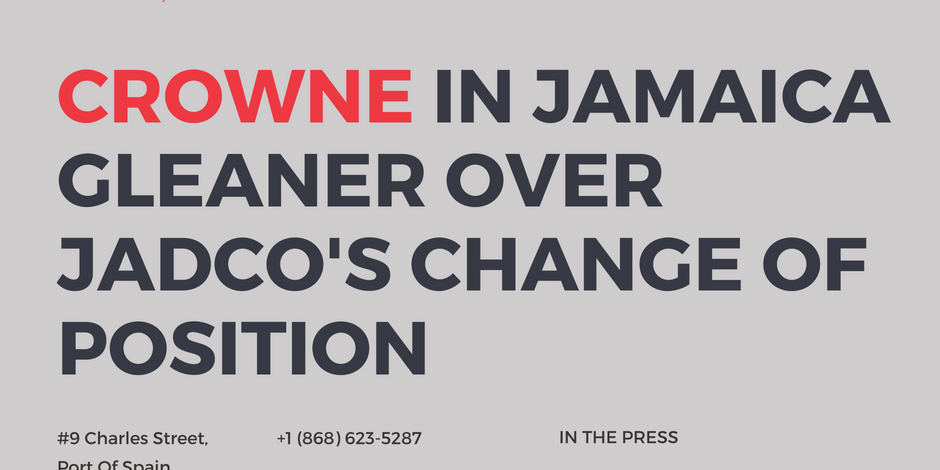The following article was first published in Jamaica’s “The Gleaner” Newspaper on Thursday 9th August, 2018.
You can read the entire article on their website HERE.
 Sports attorney Dr Emir Crowne said that he disagrees with the Jamaica Anti-Doping Commission’s (JADCO) decision to have its anti-doping hearings for athletes in breach of World Anti-Doping Agency regulations heard behind closed doors.
Sports attorney Dr Emir Crowne said that he disagrees with the Jamaica Anti-Doping Commission’s (JADCO) decision to have its anti-doping hearings for athletes in breach of World Anti-Doping Agency regulations heard behind closed doors.
JADCO chairman Alexander Williams recently told The Gleaner that the commission took the decision to better align itself with global standards and also to prevent the unwarranted damaging of reputations of those who have had a case brought against them, where there is an unintentional violation.
“As far as I know, Jamaica was the only jurisdiction to hold hearings open to the public,” Crowne told The Gleaner. “I assume that is why JADCO switched to closed hearings, but quite frankly, I disagree with it.
“I think Jamaica was, in fact, ahead of its time in ensuring open access to the courts, essentially. A doping tribunal is a type of adjudicatory body, so there was good reason to keep those hearings open to the public.”
Crowne said that Jamaica was ahead of the rest of the world in how it handled its hearing because it allowed for transparency and accountability.
“I actually see no reason why doping matters should be held in private,” he said. “People say doping hearings reveal athletes’ confidential information, but every court case does that. There are very, very good reasons, and strong reasons, why we have open courts. Open courts help ensure transparency and accountability. When it comes to doping hearings, why don’t we have the same rationale, especially in Jamaica, where sports is, I would say, disproportionately important to Jamaica’s identity and international standing? There’s good reason why there should be open hearings.”
Crowne said that public interest should be a major consideration in deciding on how to treat hearings regarding what he describes as “notable athletes,” as there would be a greater public demand for transparency.
“One need only imagine, what if, God forbid, one of Usain Bolt’s samples came back with some sort of adverse analytical finding?” Crowne asked. “No Jamaican would want that hearing to be held privately. There’d be massive public interest in it. I use Usain as the example because he is at the top of a long list of notable Jamaican athletes. Most Jamaican athletes are, in fact, notable in the sense that Jamaica, a tiny island, produces the world’s best athletes, there is great public interest in ensuring that any allegation of doping against those athletes are treated fairly and appropriately. To now make those proceedings closed and bar the public from being aware of what’s going on, does a great disservice to Jamaican athletes as a whole and the integrity of Jamaican athletics.
Crowne recently successfully represented national 400m sprinter Riker Hylton in an anti-doping hearing brought about against him by JADCO. He was also the representative of sprinter Dominique Blake, where he was successful in reducing her six- year ban to 18 months after an appeal to the Court of Arbitration for Sport.
Written by Rachid Parchment for the Jamaica Gleaner






